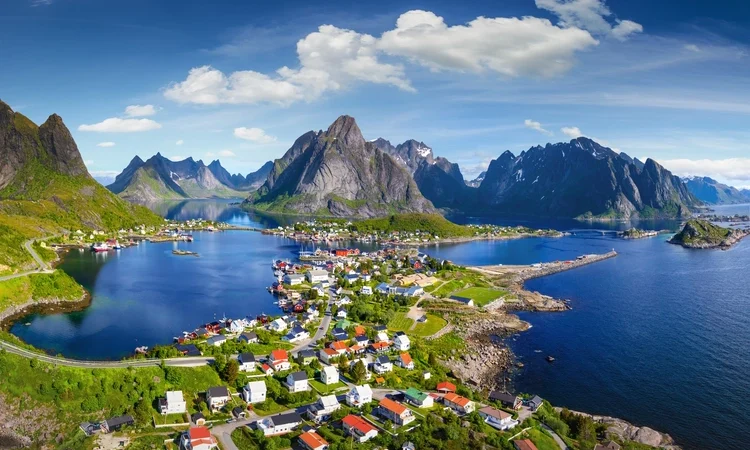
Where Is The Best Place To Escape To In A Crisis?
The existence of so many independent “nation states” across the world… “countries” the way we think of them today… is a relatively new phenomenon in history.
The idea that every ethnic or social group should have its own independent national government and geographical homeland… this idea has been very successful in the last century. But it wasn’t always this way.
Before the last hundred years or so—and in some cases a lot more recently—much more of the earth belonged to empires, “superstates” controlling territories sometimes very far from where those territories were governed…
Think of the British Empire. At one point it governed a quarter of the earth’s territory and a quarter of its population—from the tip of Africa to Australia, to India, to the Middle East, to Canada.
Or the Austro-Hungarian Empire, which before World War 1 encompassed not only Austria and Hungary but parts of the Balkans, the Czech Republic, Slovakia, Poland, Romania, and Ukraine.
Or the Soviet Union… whose collapse led to the creation of a host of new independent states in Europe.
Historian Niall Ferguson points out in his book Empire that before the First World War, there were just 59 independent countries in the world. By 1995 there were 192. Today there are 193 members of the United Nations.
Bad For Geopolitics… Good For Expats
For the expat or globally mobile citizen, however, the existence of so many countries—so many options for a backup residency or building a new life—can be a very good thing.
But different laws in different countries… different approaches to taxation, to national debt, to entrepreneurship… different approaches to dealing with crisis… can throw up their own complications.
Size matters, too.
Large or small, every country faces a particular set of circumstances and particular challenges…
Smaller states have to create outsize incentives in order to attract international capital. That can be a big benefit.
At the same time, in the churn of history, smaller states… particularly those with much larger neighbors… can get gobbled up. They may struggle to defend themselves from invasion. Or, they may simply lack the numbers of people and the institutions necessary to mobilize effectively in a crisis.
Yet, larger countries are by no means always better placed to deal with crisis…
Indeed, a federal government that operates very far from facts-on-the-ground can mean a delayed response to natural disasters… not to mention a myriad of other problems.
Go Offshore Today
Sign up to our free twice a week dispatch Offshore Living Letter
and immediately receive our FREE research report
on how to live tax-free today, while earning up to $215,200!
It’s Nice To Have Options
As a global citizen, you have a lot of choices before you when it comes to where you would like to live… and where is the best place to escape to in a crisis.
You do not have to live in a country that does not meet your expectations.
So, where should you go when the world is falling apart?
Uruguay is one solid option. Considered one of the least corrupt countries in the world, it’s politically stable with strong democratic traditions. There is little fear of invasion or terrorism. It ranks second globally for food self-sufficiency and holds higher than average freshwater reserves per capita.
With a GDP per capita of $17,300, Uruguay is a middle-income nation on the rise.
Add to that, you can get residency here easily. Show that you have income of at least $1,500 to support yourself, and you can qualify.
Also worth your consideration is Norway. It offers excellent, and generally free, public services including health care, education, pre- and after-school care. It’s also blessed with several large natural resources, has ample freshwater reserves, and a sophisticated logistics and infrastructure network.
It’s relatively easy to get residency, too. Skilled and remote workers are welcomed… and any EU or European Economic Area national has a right to live here (even though Norway is not in the EU).
After three years you can apply for permanent residency and after seven years as a resident, you become eligible for citizenship, making it a great choice for a resilient Plan B country…




